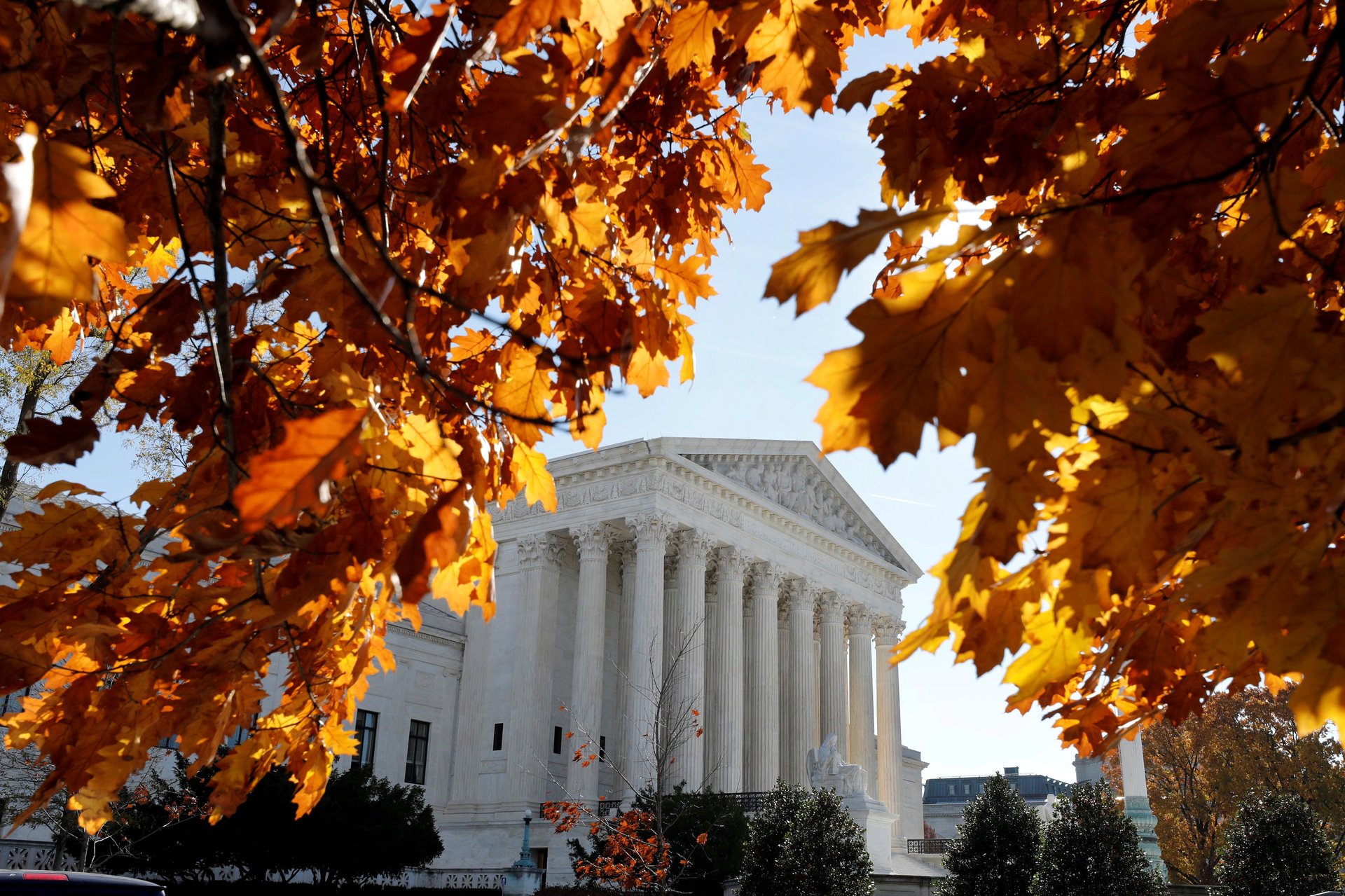With the Muslim part diluted, the Trump travel ban has finally gone into full effect
The US Supreme Court lifted stays on the latest version of president Trump’s ban, which restricts the entry of travelers from eight countries, six of them majority-Muslim nations.


The US Supreme Court lifted stays on the latest version of president Trump’s ban, which restricts the entry of travelers from eight countries, six of them majority-Muslim nations.
The restricted countries are Chad, Iran, Libya, North Korea, Somalia, Syria, Venezuela, and Yemen. The ban does not apply to permanent residents, also known as green card holders, or dual nationals traveling on the passport of the non-restricted country.
The Sept. 24 presidential proclamation is the third iteration of a travel ban that brought chaos to travelers and protests by outraged Americans at airports when it was first attempted in January. The September order, like the earlier attempts, was limited after judges in Maryland and Hawaii issued injunctions against it in October. After hearing an emergency request (paywall) from the government, the Supreme Court Monday (Dec. 4) issued this order and another one lifting those stays. The orders were unsigned but noted that Justices Ruth Bader Ginsburg and Sonia Sotomayor dissented. Legal challenges against the ban are continuing.
While issuing stays against various versions of the travel ban, courts have cited Trump’s publicly disparaging remarks about Muslims. The Supreme Court’s lifting of the stays comes even after Trump has continued to spread material clearly intended to provoke ill will to Muslims. These included a video circulated by a right-wing British nationalist that purports to show a Muslim migrant child beating up a Dutch one on crutches. Dutch media have reported that both children were Dutch.
The court didn’t say why it lifted the stays. A heightened perception of security risk during the busy holiday season could have been a factor. Another reason may be that the collection of countries included is now varied enough that it no longer quite so clearly fits the label of “Muslim travel ban”—although parties continuing to argue against the ban say otherwise.
The list of countries banned in January included only Muslim-majority nations: Iran, Iraq, Libya, Somalia, Sudan, Syria, and Yemen. The September order removes Iraq and Sudan and adds Venezuela, and North Korea, whose intercontinental ballistic missile testing this year has alarmed the US. It also adds Muslim-majority Chad.
The September order is far more clearly written than the January one. It explains why each nation is being included, lists several exceptions, and cites concerns over identity-tracking, lack of cooperation with the US, and the prevalence of terror groups in the nation.
The restrictions aren’t the same for each country—in the case of Venezuela they mainly apply to government officials and their immediate family members. They also allow immigration officials the discretion to grant case-by-case waivers. But as airlines are likely to be very cautious in boarding travelers from the restricted countries, those situations aren’t likely to arise often.
The September proclamation said Iraq’s vetting procedures were also a concern but granted it an exclusion from the ban because of “the close cooperative relationship between the United States and the democratically elected government of Iraq, the strong United States diplomatic presence in Iraq, the significant presence of United States forces in Iraq, and Iraq’s commitment to combating the Islamic State of Iraq and Syria (ISIS).”
Some early reactions to the news came from the UK, where British politicians from different parties had earlier expressed shock at seeing Trump share videos circulated by a Britain First politician. Despite its changed contours, many in the US and overseas will likely continue to see this ban as shaped mainly by prejudice against Muslims.